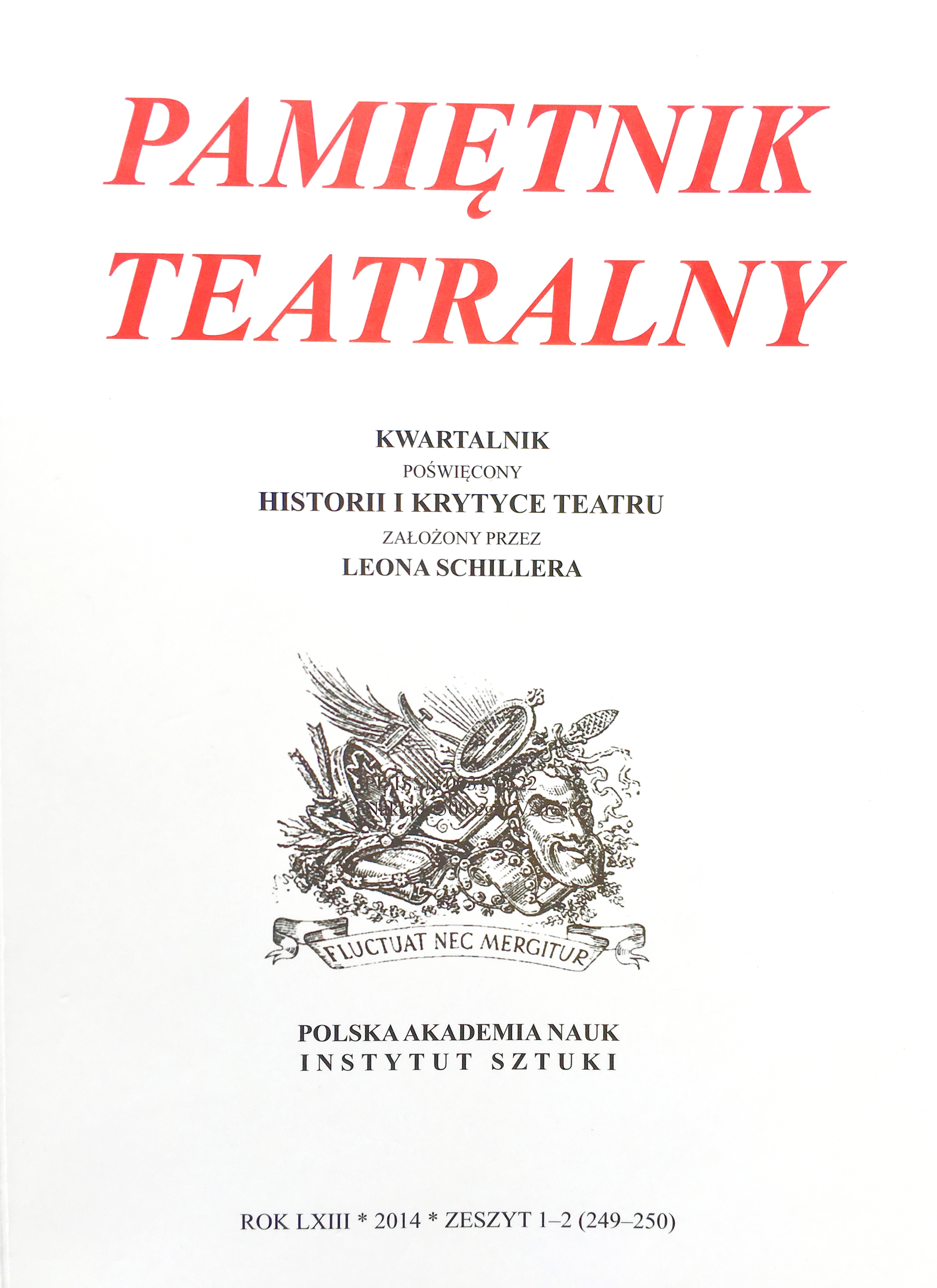Recenzja książki Mateusza Wernera Wobec nihilizmu. Gombrowicz, Witkacy (Warszawa 2009)
Review of Mateusz Werner's Book Wobec nihilizmu. Gombrowicz, Witkacy (Warszawa 2009)
Author(s): Jagoda Hernik SpalińskaSubject(s): Fine Arts / Performing Arts
Published by: Instytut Sztuki Polskiej Akademii Nauk
Keywords: theatre aesthetics;theatre studies;nihilism in literature;
Summary/Abstract: The book Wobec nihilizmu by Mateusz Werner presents the problem of nihilism and its manifestations in two perspectives: a chronological and a historiosophical one: “these two languages of description, to a greater extent complementary than antagonistic, delineate the horizon for reflexion ‘diachronising’ the problem of nihilism”. Owing to such methodology, the author’s account of the history of the concept leads to a brilliant interpretation based on the assumption that nihilism is a concept identical to “modernity” (as the term is understood by Zygmunt Bauman). One of the questions that Werner poses is to what extent nihilism determines the phenomenon of “modernity” and to what extent that of “postmodernity”, given that the concepts of nihilism and modernity are bound with each other so inextricably that they “illuminate one another’s meanings as to create a circular knot of references”. The assumption of the book is that “the concept of nihilism in all of its historical modifications constitutes a product of the self-consciousness of an intellectual formation which, after Zygmunt Bauman, we would like to call modern, and within the bounds of the aforesaid self-consciousness it is a collective name for such attitudes, conceptions and ideas which, resting on the same foundations as modernity, constitute at the same time a threat to modernity’s established values, aims, and meanings”. Thus understood, the concept of nihilism serves as a starting point for analysis of intellectual positions towards modernity taken by Witold Gombrowicz and Stanisław Ignacy Witkiewicz. Both writers were equally well aware of the nature of the contemporary world, its rejection of old axiological bases, and threats that implementation of the modernity paradigm brought. At the same time, the attitudes that each of them assumed based virtually on the same diagnosis were quite different. According to Werner, Gombrowicz decided to turn the situation to his advantage. The adequate identification of the modern world’s nature enabled Gombrowicz to deploy this knowledge in his struggle for himself, for his legend, to show his worth and superiority as being the one who knew better and was right about the nature of the world all along. Witkacy, on the other hand, assumed the position of a warrior sounding the alarm, and when his warnings failed, he simply left. This difference between the outstanding creative individuals that Werner examines point by point in relation to modernity seems to be absolutely crucial when comes to conscious individuals, intellectuals, and their attitudes towards values. Does the social status of the intellectual come with an obligation to take action and fight for one’s values, or does it permit one to stand back and build one’s individual position of the one who knows what is going on but, as “Romantic irony” dictates, refrains from doing anything about it? In other words, what attitude should an intellectual, scientist, but also theatre artist, assume? Especially when it comes to the theatre which is now often based on the thought of the two outstanding Polish individualities who responded to nihilism so differently?
Journal: Pamiętnik Teatralny
- Issue Year: 250/2014
- Issue No: 1-2
- Page Range: 312-328
- Page Count: 17
- Language: Polish

